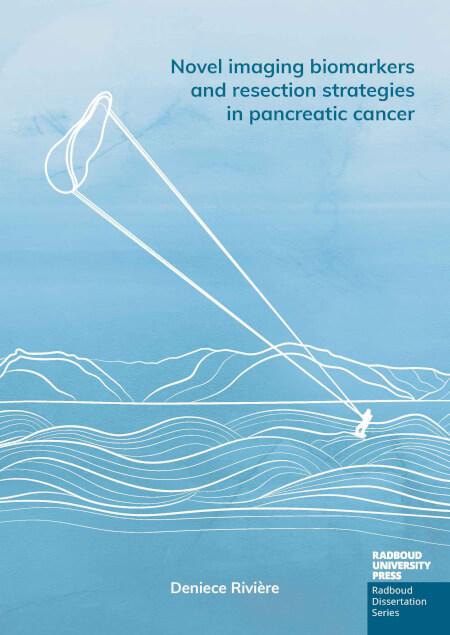Novel imaging biomarkers and resection strategies in pancreatic cancer
Keywords:
Pancreas, Minimally invasive surgery, Diagnostic imaging, CancerSynopsis
Pancreatic cancer affects over 2,800 people annually in the Netherlands, with only 12% surviving five years post-diagnosis. Before surgery, the only curative option, it is crucial to identify which tumors are operable and ensure there is no cancer spread to avoid unnecessary procedures. Traditional methods of diagnosing, staging, and prognosticating pancreatic cancer are inadequate. Developing new techniques to improve the detection of tumor aggressiveness is essential for benefiting from minimally invasive surgery, which may offer safer procedures at lower costs while enhancing patient outcomes. While tumor grading using diffusion-weighted imaging (DWI) could not be established, MRI proved particularly valuable in detecting liver metastases. Furthermore, combining assessments of blood flow and tumor metabolism may help identify tumors with aggressive biology and poorer prognostic features.

Published
Series
Categories
License

This work is licensed under a Creative Commons Attribution-NonCommercial-NoDerivatives 4.0 International License.

